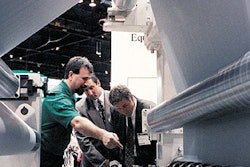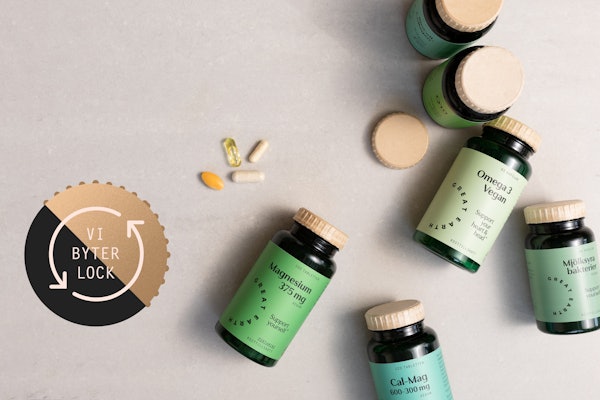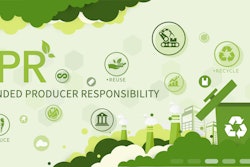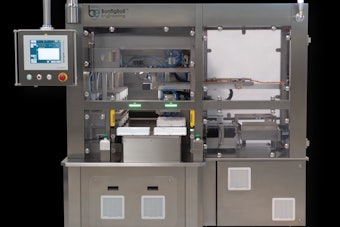"We manufacture reusable plastic packaging," explains Matt Marchetti, national account manager, pharmaceuticals, Orbis. "That includes hand-held containers or totes with flip-style lids that you'd see at a Walgreens, Rite-Aid, or CVS pharmacy, bulk containers with collapsible walls and closed doors a company would use for incoming materials in a closed-loop system, and plastic pallets for shipping." The reusable containers are injection-molded or thermoformed of high-density polyethylene or polypropylene.
Marchetti says the majority of Orbis's customers use the containers in manufacturing plants. "I'd call it the upstream side of the business where raw materials are received and stored. When those materials are off-loaded in the plant, the containers go back into the loop and are reused," he explains.
The next step in the use of reusable containers, he anticipates, is for life-sciences firms to use them for their downstream shipments, and then develop a system to reacquire the containers for multiple trips. He says the Reusable Packaging Assn. is a great educational resource for his company's customers. "Together, we can help [our customers] determine how reusable containers make sense for them, how they can gain cost savings from their use, and how to implement the containers," he says.
To date, Marchetti says some smaller customers have employed the reusable containers in situations where they have control of their entire distribution loop. That control is more difficult for a larger company, but there are attractive potential benefits.
One is in addressing the sustainability issue, driven largely by Wal-Mart. "It's nice to be able to buy one piece of packaging upfront and then reuse it for years," says Marchetti, who points to the advantages of reusable packaging compared with one-time corrugated shipping cases.
Looking at pallet loads, he says that reusable containers eliminate the need for stretch wrapping, thereby creating film savings.
He explains another benefit to plastic pallets versus traditional wood versions: "Whether it's a life-sciences company's Good Manufacturing Practices, an auditor's recommendation, or Food and Drug Administration regulations, there may be instances where wood pallets cannot be brought into a clean-room or similar environment. The plastic pallets are cleanable, sanitary, and don't need to be heat-treated or fumigated."
But costs for reusable transport packaging must be considered, particularly given the current economic situation. Pharmaceutical, biopharmaceutical, medical device, and nutraceutical manufacturers must monitor expenses. "There's no question that there's an upcharge for the initial investment in reusable packaging," Marchetti admits. "A plastic pallet may cost $50 compared to $5 for a wood pallet, so there's a bit of sticker shock with a $45 capital outlay difference. But consider that you may turn that pallet 52 times a year, so that $45 difference diminishes quickly. It's an investment."
-Jim Butschli
Marchetti says the majority of Orbis's customers use the containers in manufacturing plants. "I'd call it the upstream side of the business where raw materials are received and stored. When those materials are off-loaded in the plant, the containers go back into the loop and are reused," he explains.
The next step in the use of reusable containers, he anticipates, is for life-sciences firms to use them for their downstream shipments, and then develop a system to reacquire the containers for multiple trips. He says the Reusable Packaging Assn. is a great educational resource for his company's customers. "Together, we can help [our customers] determine how reusable containers make sense for them, how they can gain cost savings from their use, and how to implement the containers," he says.
To date, Marchetti says some smaller customers have employed the reusable containers in situations where they have control of their entire distribution loop. That control is more difficult for a larger company, but there are attractive potential benefits.
One is in addressing the sustainability issue, driven largely by Wal-Mart. "It's nice to be able to buy one piece of packaging upfront and then reuse it for years," says Marchetti, who points to the advantages of reusable packaging compared with one-time corrugated shipping cases.
Looking at pallet loads, he says that reusable containers eliminate the need for stretch wrapping, thereby creating film savings.
He explains another benefit to plastic pallets versus traditional wood versions: "Whether it's a life-sciences company's Good Manufacturing Practices, an auditor's recommendation, or Food and Drug Administration regulations, there may be instances where wood pallets cannot be brought into a clean-room or similar environment. The plastic pallets are cleanable, sanitary, and don't need to be heat-treated or fumigated."
But costs for reusable transport packaging must be considered, particularly given the current economic situation. Pharmaceutical, biopharmaceutical, medical device, and nutraceutical manufacturers must monitor expenses. "There's no question that there's an upcharge for the initial investment in reusable packaging," Marchetti admits. "A plastic pallet may cost $50 compared to $5 for a wood pallet, so there's a bit of sticker shock with a $45 capital outlay difference. But consider that you may turn that pallet 52 times a year, so that $45 difference diminishes quickly. It's an investment."
-Jim Butschli





















